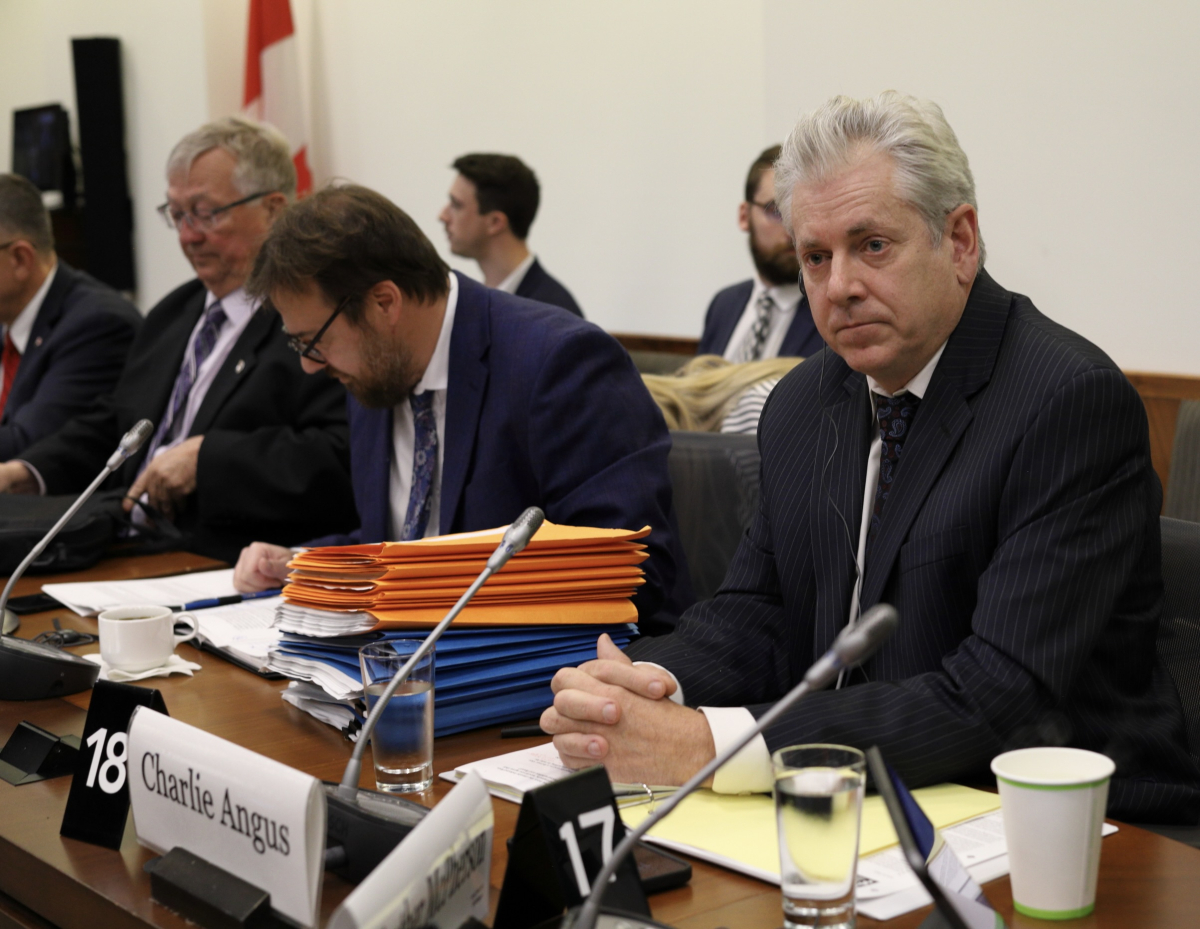Support strong Canadian climate journalism for 2025
Canadian MPs are back in the capital and kicked off day one by digging into the climate and financial impacts of the Trans Mountain pipeline expansion (TMX).
Over five committee meetings in coming weeks, federal ministers, experts and interest groups will testify about TMX’s impact on Canada’s climate targets, how the cost to taxpayers soared, and government plans to sell TMX.
“I pushed the TMX study because this is the number one issue,” said NDP MP Charlie Angus in an interview with Canada’s National Observer. Angus spearheaded the TMX study and, with the support of the Bloc Quebecois and Conservatives, got it on the Standing Committee on Natural Resources agenda the first day back from summer break.
“We are seeing a massive increase in oil, we're seeing a complete mockery of the government's commitments on an [emissions] cap. And we need answers,” he said.
On Sept. 16, MPs had the opportunity to question Canada Energy Regulator executives, Parliamentary Budget Officer Yves Giroux and Julia Levin, associate director of national climate for Environmental Defence.
Angus wanted to know more about the financial structures propping up TMX. He pointed out that Trans Mountain Corporation’s quarterly reports don’t show the full cost of the project and all the debt it has incurred.
TMP Finance, a subsidiary of Canada Development Investment Corporation (CDEV), borrowed money needed for construction and disbursed it to Trans Mountain Corporation. TMP Finance still has to pay the full amount back, with interest, but this reality isn’t reflected on Trans Mountain Corporation’s balance sheet.
“What would the advantage be of setting up a shell corporation that has no employees, whose only role is to hold all your debt and keep it off the books of Trans Mountain Corporation?,” Angus asked Giroux, whose office previously conducted cost analyses of TMX that found even before construction costs skyrocketed, TMX wouldn’t turn a profit.
The PBO is currently working on an updated analysis that will reflect the now $34.2-billion construction cost. The price tag was an estimated $7.3 billion in 2018 when the federal government purchased the pipeline from Kinder Morgan for $4.5 billion.
Giroux had “no idea” why the federal government used TMP Finance to carry the project’s debt and doesn’t see an obvious benefit to the federal government’s approach.
Angus pointed out that under the Export Development Act, all or part of the debt obligations owned by TMP Finance can be forgiven through ministerial direction.
“It seems like they set up this shell company to hide the cost and then they can just write it off. I'm feeling like I'm in Kazakhstan or Venezuela or something when dealing with Chrystia Freeland’s commitment to the tar sands,” Angus said.
Finance Canada previously declined to explain to Canada’s National Observer why TMP Finance was necessary for Trans Mountain corporation to access financing. The department has also never responded to questions about whether it will consider writing off all or part of the debt, as experts predict will be necessary.
Giroux said the PBO’s new analysis will be published by the end of the year, perhaps as early as November, and said he would return to committee to discuss the report, if invited.
Conservative MP Shannon Stubbs called the cost increases “drastic, unconscionable, outrageous,” noting that her party opposed the federal government’s decision to purchase TMX in 2018.
After years of delay and cost increases, TMX is complete and in service. The project nearly triples Trans Mountain’s shipping capacity to 890,000 barrels per day.
“Each barrel of oil we export through TMX results in additional carbon in the atmosphere that is contributing to the unnatural wildfires, floods and droughts being experienced by so many across Canada, including the fire that burned down much of Jasper,” Levin said in her opening statement at the committee meeting.
Levin did the math: “Producing and burning 600,000 barrels of oil would result in 84 million tonnes of carbon dioxide each year. That's the equivalent of driving around 20 million cars or running 22 coal plants. It's more than the yearly emissions of Quebec,” she said.
The federal government and the U.S. Environmental Protection Agency estimate each tonne of emitted carbon dioxide causes CAD$294 in economic damages (by way of increased health care costs, property damage and decreased agricultural productivity, for example). This would put the cost of TMX’s carbon emissions at over $20 billion per year, Levin said.
Originally, MPs wanted to first hear from fossil fuel lobby groups, the Canadian Association of Petroleum Producers (CAPP) and Pathways Alliance. However, neither group was present at the Sept. 16 meeting of the Standing Committee on Natural Resources.
“I was shocked that Pathways Alliance and CAPP have opted to not come to our committee,” Angus said in an interview with Canada’s National Observer immediately after the meeting.
“We will be bringing a motion calling for them, and if necessary, issuing the order to come,” said Angus, referring to the committee’s subpoena powers.
“We will use that because they are making an enormous amount of money from the taxpayer. They need to be accountable. They need to explain how they are going to benefit from TMX, and if they think they can just ignore this, my office will be bringing forward a motion to summons them,” Angus said. During the meeting, other MPs, like Conservative MP Shannon Stubbs, also expressed their desire to hear from CAPP and Pathways Alliance.
Natasha Bulowski / Local Journalism Initiative / Canada’s National Observer






Comments